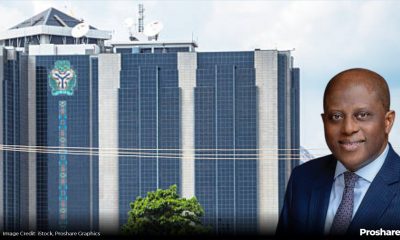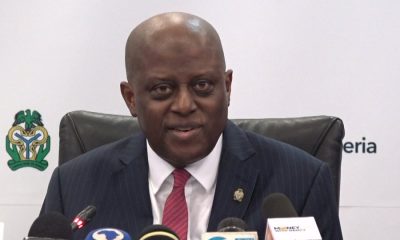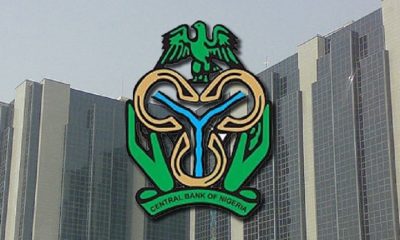Banking
Nigerian Banks Must Recapitalise to Revive Economy—IMF
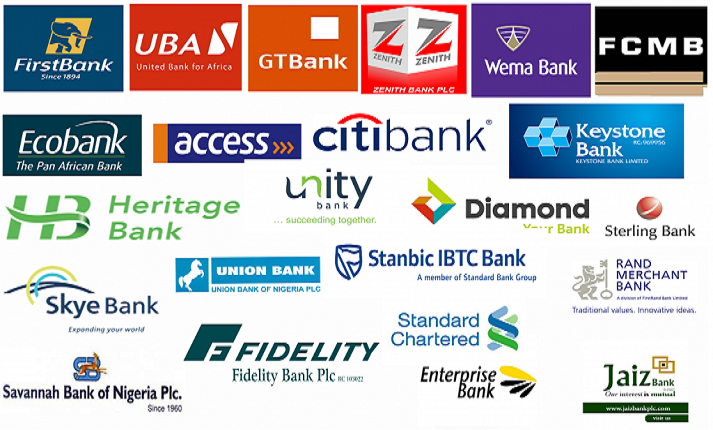
By Modupe Gbadeyanka
The need for deposit money banks (DMBs) operating in Nigeria to raise fresh funds to boost their capital adequacy ratios (CARs) otherwise known as capital base, has been emphasised by the International Monetary Fund (IMF).
Speaking at a function in Lagos over the weekend, IMF’s Mission Chief for Nigeria, African Department, Mr Amine Mati, explained that the recapitalisation was needed to ensure the aim of the Economic Recovery and Growth Plan (ERGP) formulated by the present administration of President Muhammadu Buhari was met.
The ERGP, a Medium Term Plan for 2017 to 2020, was designed by the Federal Government and launched some months ago to jumpstart the economy.
The last recapitalisation in banking sector in Nigeria happened in 2005 and the Central Bank of Nigeria (CBN) then raised the minimum capital base from N2 billion to N25 billion, leaving some banks to merge and other undercapitalised banks acquired by bigger lenders.
After the exercise, the number of banks in Nigeria reduced to 25 from 89.
At the moment, there are 21 commercial banks, four merchant banks and one non-interest bank.
In Nigeria, the central bank pegged the capital adequacy ratio for banks at 15 percent, though most banks
The Central Bank of Nigeria (CBN) has continued to advise banks to double provisions on performing loans to two percent to build adequate buffers against unexpected losses, as liquidity ratios fall. Besides, lower revenues for government and oil companies due to plunging crude prices have led to unsecured exposures for banks that are likely to increase credit risk and loan losses. The level of non-performing loans has risen to nearly 15 per cent against five per cent regulatory threshold and lenders need new capital to maintain sound capital adequacy ratio.
Speaking at the 2017 Chartered Institute of Bankers of Nigeria (CIBN) Investiture, Mr Mati said lenders in the country should seek fresh capital from the Eurobond market.
This, Business Post reports, some banks are already doing.
In May 2017, Zenith Bank Plc expressed its intention to issue about $500 million Eurobond in the second tranche of the $1 billion Global Medium Term Note programme it launched in 2014.
In the first tranche of the exercise, the financial institution’s $500 million Eurobond was oversubscribed by investors mainly from Nigeria, the United States, the United Kingdom and the European Union.
Zenith Bank then explained that it, “Intends to utilize the net proceeds of the Second Tranche Notes for its general banking purposes.”
“The net proceeds from the issue of the Second Tranche Notes will be paid into the Bank’s foreign currency domiciliary account and may be converted into Naira or retained in foreign currency,” it said further.
In June 2017, the $500 million Eurobond launched by United Bank for Africa (UBA) Plc in May 2017 was oversubscribed by investors from the United Kingdom, Europe, Asia, the Middle East and the United States, Business Post can report.
It was gathered that exercise was 240 percent oversubscribed, reflecting the strong demand for UBA’s credit and support for its pan-African financial services strategy by global investors.
This month, Fitch Ratings described the issuance of Eurobonds by Nigerian banks as a step towards reducing maturity mismatches between foreign-currency (FC) assets and liabilities.
The global rating firm said the return of Nigerian banks to the international bond markets lessens FC liquidity risk, but the impact will be modest as the new bond issuances are small relative to total term FC lending.
Banking
Senate Seeks Stronger CBN Oversight in Fintech Regulation
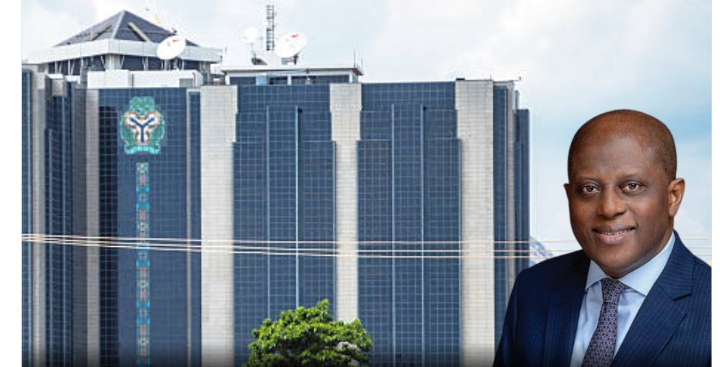
By Adedapo Adesanya
The Senate has called for a strengthened regulatory framework that positions the Central Bank of Nigeria (CBN) at the centre of oversight of the country’s fast-growing fintech sector.
The recommendation was made by Chairman of the Senate Committee on Banking, Insurance, and Other Financial Institutions, Mr Adetokunbo Abiru, during a one-day public hearing at the National Assembly complex on Wednesday.
The event focused on the proposed amendment to the Banks and Other Financial Institutions Act (BOFIA) 2020 (SB. 959) and included an investigative session into fraudulent investment platforms, notably the recent Crypto Bullion Exchange (CBEX) incident.
Mr Abiru, who is a former Group Managing Director of Polaris Bank and Executive Director at First Bank Nigeria, emphasised that fintechs, including mobile money operators, digital lenders, payment platforms, and settlement companies, have become systemically important to Nigeria’s financial ecosystem.
While their growth has expanded financial inclusion, existing laws, he said, do not fully address the scale, data sensitivity, and systemic impact of these technology-driven institutions.
“The question has arisen as to whether a new standalone regulatory agency would be preferable for supervising fintechs,” Mr Abiru said.
“However, creating a separate agency would duplicate functions, fragment oversight, and increase bureaucratic costs. It is far more effective to strengthen the BOFIA framework, modernise CBN supervisory powers, and mandate coordination with key agencies such as the Securities and Exchange Commission, Nigerian Communications Commission, Corporate Affairs Commission, Federal Competition and Consumer Protection Commission, and the Office of the National Security Adviser,” he added.
The lawmaker proposed that the amendment should explicitly empower the CBN to designate qualifying fintechs as Systemically Important Institutions, establish a national registry for transparency and beneficial ownership disclosure, and strengthen risk-based supervision tailored to technology-driven financial services.
Beyond fintech regulation, the Senate intensified scrutiny on Ponzi schemes and fraudulent investment platforms.
Mr Abiru described the rising prevalence of such schemes as a threat to financial stability and public trust, citing the CBEX debacle, which reportedly caused severe financial losses to individuals across Nigeria, including professionals, traders, students, and retirees.
Banking
Zenith Bank Deepens Engagement Around Women’s Empowerment, Others

By Modupe Gbadeyanka
Monday, March 9, 2026, has been fixed by Zenith Bank Plc for its annual International Women’s Day seminar in Lagos.
The event is part of activities lined up to commemorate the 2026 International Women’s Day, themed Give to Gain.
The theme prepared for Zenith Bank’s programme is Take it, You Own it, and was designed to deepen meaningful engagement around women’s empowerment, leadership, and sustainable impact.
The workshop will include segments focused on leadership insight, professional empowerment, wellbeing, and collaboration, offering attendees opportunities to engage deeply with thought leadership and practical strategies for advancing equity.
With a carefully curated programme spanning keynote addresses, panel conversations, Q and A sessions, and creative interludes, Zenith Bank’s 2026 International Women’s Day Seminar promises to be a catalyst for meaningful action.
“International Women’s Day is a reminder that progress requires intentionality.
Give to Gain speaks to the responsibility institutions have to create real opportunities, while our theme, Take It, You Own It, challenges women to step forward boldly and lead.
“At Zenith Bank, we are deliberate about building environments where women are supported to grow, thrive, and shape outcomes, not only within our institution but across the communities and industries we serve,” the chief executive of Zenith Bank, Ms Adaora Umeoji, stated.
Over the years, the lender’s International Women’s Day initiatives have brought together women leaders, professionals, entrepreneurs, and emerging talents for dynamic dialogue, inspiration, and shared learning around gender equity, professional growth, and inclusive opportunity.
More than a commemorative gathering, the 2026 seminar is designed as a convergence of influence, insight, and inspiration, bringing together accomplished women and progressive leaders across business, governance, creative industries, technology, and social impact.
Banking
Ecobank Accelerates Growth for Women Entrepreneurs With Enhanced ‘Ellevate’ Programme
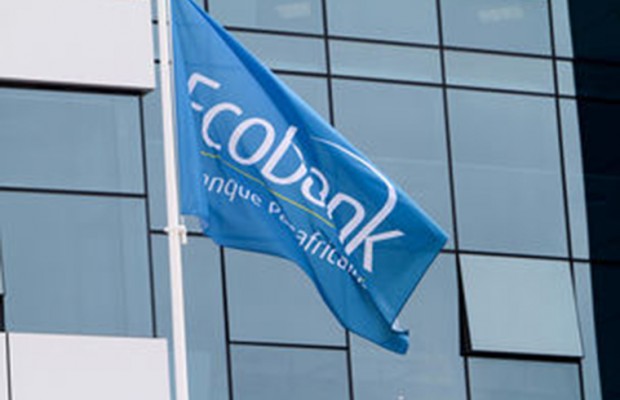
By Modupe Gbadeyanka
As part of activities commemorating International Women’s Day 2026, Ecobank Nigeria has improved its multi-award-winning gender financing initiative, Ellevate by Ecobank.
Originally launched to improve access to finance for women-owned, women-led, and women-focused small and medium-sized enterprises (SMEs) within its commercial banking segment, the enhanced Ellevate programme now adopts a broader, more inclusive structure.
The new framework extends across all business segments, positioning Ellevate as a comprehensive ecosystem designed to address the structural financing and growth barriers faced by women entrepreneurs.
The upgraded programme reinforces the bank’s long-term commitment to advancing women-led enterprises in Nigeria and across Ecobank’s pan-African footprint.
Under the expanded structure, beneficiaries will enjoy improved access to credit on competitive terms, including more flexible collateral considerations aimed at easing traditional financing constraints. Beyond lending, the programme integrates digital payment, collections, and cash management solutions to enhance operational efficiency and support scalability.
A core pillar of the enhancement is structured market access. Through the bank’s MyTradeHub online matchmaking platform and e-commerce enablement capabilities, women entrepreneurs will be better positioned to connect with customers and trade partners across Africa, facilitating cross-border expansion and participation in regional value chains.
The initiative also incorporates robust non-financial support mechanisms, including targeted training programmes, leadership development sessions, and knowledge-sharing platforms to strengthen managerial capacity and long-term sustainability.
This is complemented by access to customised wealth management advisory services, integrated insurance solutions, and a loyalty framework offering commercial incentives through select retail and lifestyle partnerships.
“Since its launch in Nigeria in July 2021, Ellevate has delivered meaningful impact for SMEs and women-led businesses.
“This next phase deepens our value proposition and reinforces our resolve to remain the preferred financial partner for women entrepreneurs,” the Managing Director of Ecobank Nigeria, Mr Bolaji Lawal, said.
“African businesswomen deserve world-class banking solutions that drive turnover, profitability, and sustainable growth. Our approach goes beyond financial inclusion to building an enabling ecosystem that enhances competitiveness and long-term resilience,” he added.
He further highlighted that Ecobank Nigeria consistently hosts flagship platforms such as Adire Lagos, Oja Oge, +234Art Fair, the Lagos Pop-Up Museum, SME Bazaar, and the Design & Build Exhibition, which provide prominent opportunities for showcasing and elevating women-owned businesses.
-

 Feature/OPED6 years ago
Feature/OPED6 years agoDavos was Different this year
-
Travel/Tourism10 years ago
Lagos Seals Western Lodge Hotel In Ikorodu
-

 Showbiz3 years ago
Showbiz3 years agoEstranged Lover Releases Videos of Empress Njamah Bathing
-

 Banking8 years ago
Banking8 years agoSort Codes of GTBank Branches in Nigeria
-

 Economy3 years ago
Economy3 years agoSubsidy Removal: CNG at N130 Per Litre Cheaper Than Petrol—IPMAN
-

 Banking3 years ago
Banking3 years agoSort Codes of UBA Branches in Nigeria
-

 Banking3 years ago
Banking3 years agoFirst Bank Announces Planned Downtime
-

 Sports3 years ago
Sports3 years agoHighest Paid Nigerian Footballer – How Much Do Nigerian Footballers Earn



